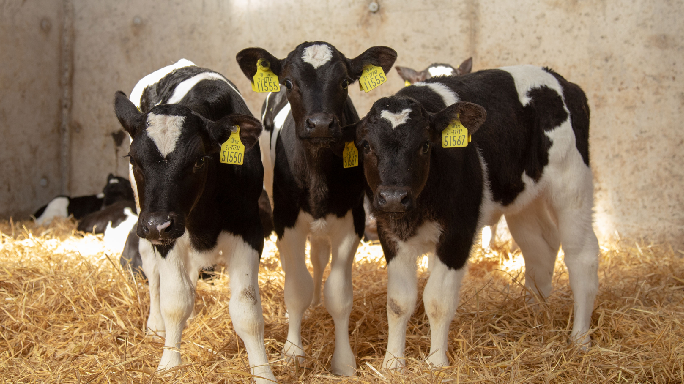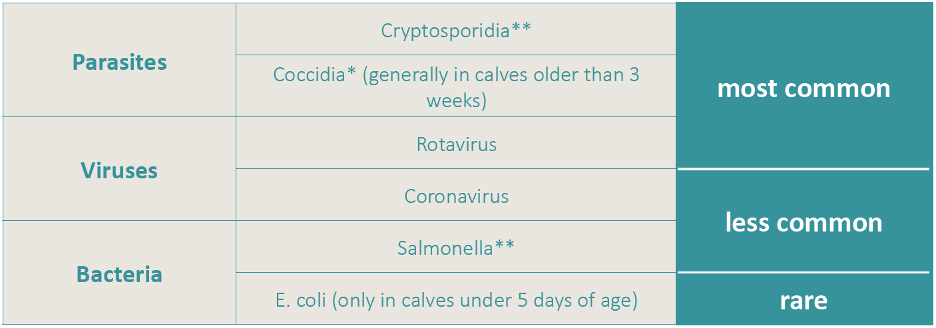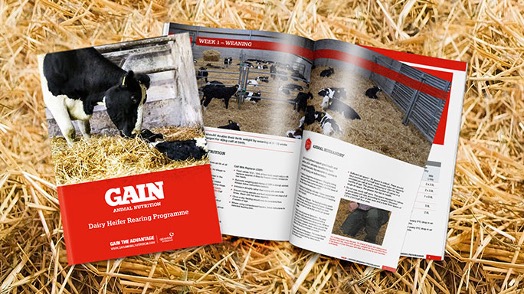Calf Scour Control

Calf scour is still the most common health issue among young calves. It causes major financial losses, as well as stress and an increased workload.
Scours in the young calf are caused by a variety of infectious agents including parasites, viruses and bacteria. When scour occurs, the mucosa lining of the intestines gets damaged which causes a loss of fluid and salts, resulting in the calf becoming dehydrated.

Key actions to consider
- Removing the scouring calf from the group: This prevents infection from spreading to other calves, but it also facilitates control, handling and management of the sick calf.
- Rehydration: Fluids and electrolytes are best provided as electrolyte solutions that are given in an additional feeding, e.g. at noon and late evening. You can safely give these solutions by stomach tube if the calf refuses or is unable to drink.
- Milk feeding: For the provision of energy and nutrients, the scouring calf needs as much milk as the healthy calf. Keeping calves on milk while they are scouring will not worsen or prolong diarrhoea and can aid in recovery. Milk withdrawal, however, can lead to loss of condition, therefore, the normal feeding regime should be maintained. As long as calves are up and drinking no further treatment beyond these steps is required.
Antibiotics do not work against the parasites and viruses that are the most common causes of calf scour.
Thus, it makes no sense to treat calves with antibiotics just because they are scouring. If antibiotics are used when they are not needed, there is a good chance they won’t work if, in the future, the calf has an infection that does require antibiotic treatment. When a calf is down, not drinking and/or their eyeballs are sunken, a veterinary practitioner should be called for further treatment.
The most important principle for the treatment of calf scour is the replacement of lost fluids (rehydration) and salts (electrolytes). Inclusion of a buffer such as bicarbonate, citrate, propionate or acetate aids in the recovery from acidosis, commonly part of calf scour.
Find our wide selection of calf electrolytes here
Consult the GAIN Heifer Rearing Programme for further tips on calf health and nutrition.

First Published 25 January 2022
